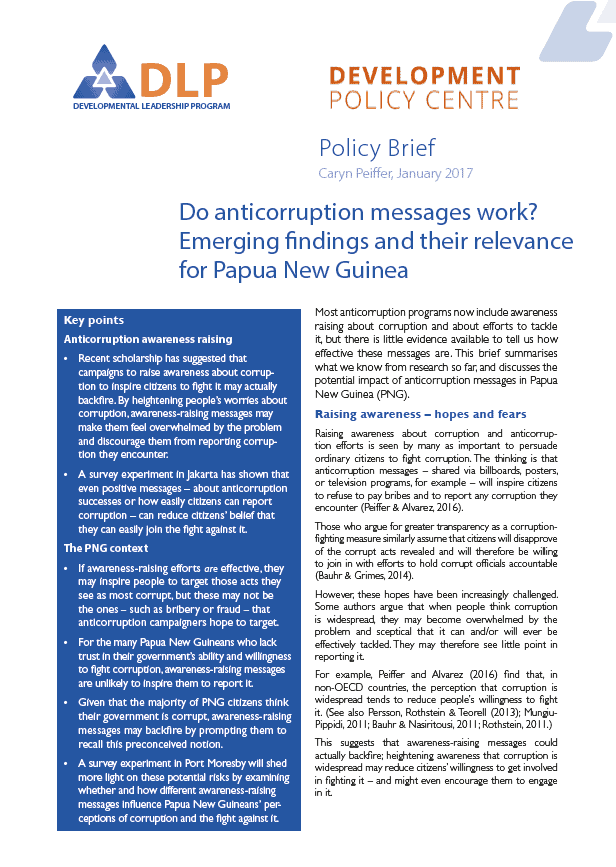Most anticorruption programs now include awareness raising about corruption and about efforts to tackle it, but there is little evidence available to tell us how effective these messages are. This three-page brief summarises what we know from research so far, and discusses the potential impact of anticorruption messages in Papua New Guinea (PNG).
It highlights that:
- Recent scholarship has suggested that campaigns to raise awareness about corruption to inspire citizens to fight it may actually backfire. By heightening people’s worries about corruption, awareness-raising messages may make them feel overwhelmed by the problem and discourage them from reporting corruption they encounter.
- A survey experiment in Jakarta has shown that even positive messages – about anticorruption successes or how easily citizens can report corruption – can reduce citizens’ belief that they can easily join the fight against corruption.
- If awareness-raising efforts are effective, they may inspire people to target those acts they see as most corrupt, but these may not be the ones – such as bribery or fraud – that anticorruption campaigners hope to target.
- For the many Papua New Guineans who lack trust in their government’s ability and willingness to fight corruption, awareness-raising messages are unlikely to inspire them to report it.
- Given that the majority of PNG citizens think their government is corrupt, awareness-raising messages may backfire by prompting them to recall this preconceived notion.
- A survey experiment in Port Moresby will shed more light on these potential risks by examining whether and how different awareness-raising messages influence Papua New Guineans’ perceptions of corruption and the fight against it.










